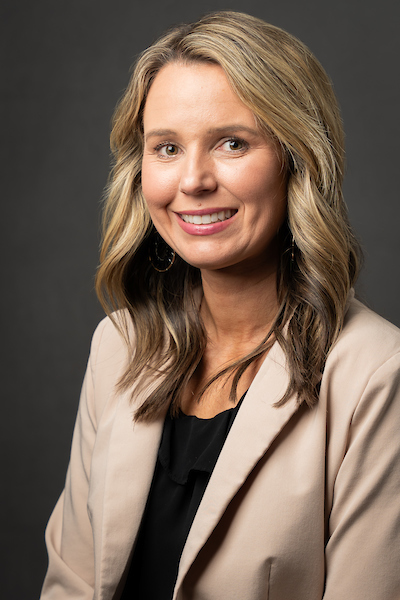Forensic Nursing Certificate

Assistant Professor Andrea Sebastian, DNP, APRN, CPNP-AC/PC, AFN-C, SANE-P, DM-AFN, is the concentration coordinator for the Forensic Nursing Certificate. She served as principal investigator of a $1.5 million, three-year Health Resource and Services Administration (HRSA) grant that provided forensic training to more than 20 nurses in West Tennessee. She also was integral to the establishment of the college's academic Forensic Nursing Certificate program. Dr. Sebastian is a member of the Child Advocacy Resource and Evaluation Services team of Le Bonheur Children's Hospital.
Program Description
The Forensic Nursing Certificate program prepares licensed Registered Nurses and Advanced Practice Nurses with the knowledge, skills, and abilities needed to provide holistic, culturally-competent, evidence-based, forensic nursing care for adult, adolescent, and pediatric assault survivors. Didactic, lab, and clinical experiences prepare the graduate to provide forensic nursing care and investigation for assault survivors across the lifespan. Upon completion of this program, graduates may be eligible to take the Forensic Nurse Certification Board Advanced Forensic Nurse Certification (AFN-C) or Generalist Forensic Certification (GFN-C) and practice as a Sexual Assault Nurse Examiner (SANE). This one-year program includes twelve hours of course work.
Forensic Outcomes
Upon completion of the course, the student will be able to:
- Evaluate the emerging model of forensic nursing within the historical, political, and social context of the disciplines of nursing, health care, law, and forensics.
- Apply forensic concepts and standards of practice to the provision of competent, comprehensive, patient-centered, coordinated care to assault survivors.
- Describe best practices related to the nursing care of assault survivors.
- Formulate collaborative interventions that employ ethical decision-making and cultural competence in the prevention and treatment of assault.
- Practice collaboratively with the interprofessional assault resource teams.
- Provide comprehensive, patient-centered care during the medical forensic examination, treatment, stabilization, and referral process.
- Use critical thinking in the collection, preservation, and documentation of evidence obtained during the forensic examination
- Apply principles of forensic best practice during legal proceedings.
Course Description
*One two-day (16 hours) on-campus simulation workshop is offered.Course ID Title Credits
NSG Fundamentals of Forensics 3 NSG Advanced Forensic Nursing I: Adult Forensic Care 3 NSG Advanced Forensic Nursing II: Pediatric Forensic Care 3 NSG Advanced Forensic Nursing III: Forensic Leadership & Evidence-Based Practice 3 Total 12
**300 clinical hours of forensic practicum must be completed during the program.Pre-Matriculation Requirements
1. Completion of required immunizations.
2. Successful criminal background check and drug screening.
3. Student confirmation of their ability to meet technical and performance standards of the certificate program.
Admission Requirements
- Bachelor of Science degree in nursing (BSN), Master of science degree in nursing (MSN), or a Doctor of Nursing Practice (DNP) degree.
- An unencumbered license as a registered nurse and/or an advanced practice nurse.
- Grade Point Average of 3.0 or higher in BSN, MSN, or DNP program
- Two recommendations supporting the applicant’s ability to function in the Forensic Nursing role.
- Interview - Applicants meeting admission criteria and selected for further admission consideration
must participate in a recorded interview for the purpose of evaluating applicant’s
ability to practice within the Forensic role.
Applications can be made through NursingCas.
One Student's Story

Raven Wentworth,DNP, RN, APRN, AGPCNP-BC, FNP-BC, CNE,has a stack of nursing credentials, but she chose the UT Health Science Center College of Nursing to attain her Forensic Nursing Certificate. “The College of Nursing is rich in history, well-respected and known for innovation in nursing education,” said Dr. Wentworth, an assistant professor of Nursing at Freed-Hardeman University in Henderson, TN. In her faculty role, “I will incorporate the knowledge I have gained from this program to prepare tomorrow's nurses to care for survivors of violence/abuse. I plan on continuing to develop my role as a forensic nurse and to serve my community.”
Questions?
If you have questions about the Forensic Certificate, please reach out to Dr. Andrea Sebastian at ajone181@uthsc.edu.
